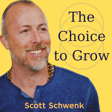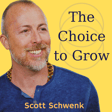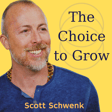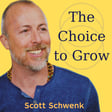
Geoff Fitch on the Embodied Realization of Freedom
In this expansive and humble dialogue, Scott Schwenk welcomes transformation facilitator Geoff Fitch for a luminous inquiry into awakening, embodiment, and the paradox of modern spiritual life. With humor and precision, Geoff explores how emptiness and form, compassion and clarity, self and culture all co-arise—and how awakening isn’t an escape from life but a deeper embrace of it. From dreamlike perception and financial stress to the grit of manifesting and the wisdom of community, this conversation is a treasure map for those choosing to grow with their whole being.
Geoff Fitch - Leadership Development, Late-Stage Guide, Master Coach
Geoff is a coach, trainer, and facilitator of growth in individuals and organizations, and a creator of transformative leadership education programs worldwide. He is a founder of Pacific Integral, where is was instrumental in the development of the internationally-acclaimed Generating Transformative Change program, now offered three continents and in it’s 24th cohort. Through these programs, he has researched and evolved novel approaches to individual and collective growth. He has been exploring diverse approaches to cultivating higher human potentials for over 25 years, including somatic and transpersonal psychology, mystical traditions, innovation and creativity, leadership, integral theory, and collective intelligence.
Scott Schwenk - Master Coach, Spiritual Teacher, Culture Architect
Scott’s teachings, courses and private mentoring guide leaders, seekers and creatives to explore their deepest selves in service of thriving on all levels of being, both individually and relationally.
Host and creator of the podcast The Choice To Grow, Scott is known for his hugely popular courses and workshops with OneCommune.com, Younity.com, Wanderlust Festivals, and Unplug Meditation, Scott has been catalyzing the inner evolution of others for decades: helping them to grow, transform obstacles into opportunities, and find Love within.
Scott spent several years living and studying in a meditation monastery which introduced him to the core body of Tantric meditation traditions which continue to flow through each of his teachings. Scott continues to study and teach from two key Tantric lineage streams.
Apprenticeships in leadership development, meditation and philosophy training, shadow work/shadow resolution and spiritual awakening are all part of Scott’s development into the thought-leader that he is today. He continues to refine his offerings studying and practicing with key innovators at the leading edges of human development.



